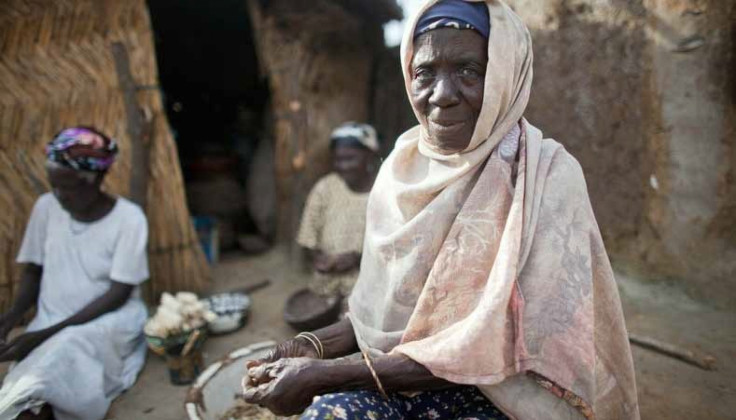'Black Magic' And Poverty Turn Into A Curse For Ghana's Exiled 'Witches'

Hundreds of women in rural and impoverished parts of northern Ghana have been banished from their homes, accused of using black magic and forced to live in "witch camps," where they are typically confined for the rest of their lives with limited access to basic necessities.
ActionAid, an international humanitarian aid organization, recently published a report, "Condemned without a trial: women and witchcraft in Ghana," documenting the abuses and hardships faced by these women both before and after they have been sent off to live in isolation in these camps.
"The women have fled discrimination, threats or even mob justice after being accused of witchcraft and blamed for 'crimes' such as causing sickness, droughts or fires, cursing a neighbor or even just appearing in someone's dream," the report reads.
"Those who reach the witch camps are the lucky ones. Women have been murdered after accusations of witchcraft."
According to the report, roughly 800 women and around 500 children live among six main camps located in remote areas of northern Ghana. Many of these women are elderly and more than 70 percent of them widowed.
"Though both men and women can be accused of witchcraft, the vast majority are women, especially the elderly. Widows, childless or unmarried women are vulnerable to being branded as witches as they do not fulfil expected gender stereotypes," the report reads.
"In addition, widows and unmarried women usually have weak social protection systems -- lacking an influential person to support them."
The children are most often young girls, typically relatives who have been sent to help take care of them.
"Most of these girls have never gone to school, or have dropped out, and even when they reach the age when they could leave the camps, they usually cannot because they are tainted by the word 'witch,'" the report reads.
The camps consist mainly of mud huts, some located miles from fresh drinking water and lacking adequate food supplies. Health and education services are virtually nonexistent aside from the help provided by organizations like ActionAid.
ActionAid describes the camps as "women's prisons where inmates have been given no trial, have no right of appeal but have received a life sentence."
Nevertheless, the camps serve as a haven for many of these women, who would be subjected to further violence and intimidation if they stayed in their home villages.
The Ghanaian government has called for the camps to be shut down as soon as this year, but ActionAid has cautioned against closing them too early before adequate assistance can be provided to the women and children to help them safely reintegrate into their communities.
Belief in witchcraft is deeply entrenched in the folk culture of Ghana's rural and underdeveloped regions, where it is commonly used as an explanation for any number of misfortunes. Those accused can go through purification rituals, but even so may remain stigmatized by their communities if they attempt to return.
"The process of being released from the camps and going back to live at home is a complex one," reads the report.
"Many women do not want to return because of their betrayal by family and community members, the trauma of stigmatization, the uncertainty about the community's acceptance of their return and the fear of being blamed for any future misfortunes."
ActionAid reported that in 2008, 40 percent of women who attempted to return home ended up going back to the camps after facing continued discrimination and fresh accusations of practicing witchcraft.
The organization has called on the Ghanaian government to focus on education campaigns in rural areas to diminish belief in witchcraft.
"It will need time because it is not only a social or cultural practice; there's a psychological dimension too," said ActionAid country director Adwoa Kwateng-Kluvitse in a statement.
"We are going to have to disabuse people's minds and that takes a long time."
© Copyright IBTimes 2024. All rights reserved.





















